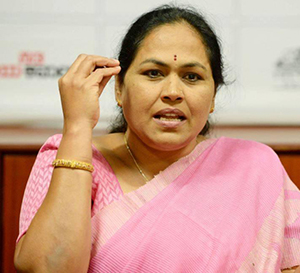Mangaluru, Jul 20: Dakshina Kannada district unit of the Social Democratic Party of India has demanded the resignation of BJP leader and Udupi-Chikkamagaluru MP Shobha Karandlaje for telling lies to union home minister and baselessly accusing the party of supporting the accused in murders reported in the State.’
He said that Karandlaje had erred in including the name of Ashok Poojary, a victim of assault, in the list of 23 persons murdered in the State in the last four years.
This list was submitted along with Ms. Karandlaje’s letter to Union Home Minister Rajnath Singh seeking investigation by National Investigation Agency of the murder of RSS activist Sharath and 22 others.
Mr. Bellare said that among the 23 mentioned in the list, one has committed suicide.
There are a few cases where victims have died following a fight for personal reasons and also because of gang fights. The Udupi MP has falsely accused SDPI of supporting those arrested in those cases.
Mr. Bellare said that Karandlaje should seek an apology in public for giving an erroneous report to the Union Home Minister and falsely accusing SDPI of supporting the accused.
“If she fails to do it, we will seek legal advice and file a defamation case against Ms. Karandlaje,” Mr. Bellare told reporters.











Comments
still 146 countries...let him picnic so that he can wound up within 2yrs...else it will be difficult....speech script no issue....he s good for abbreviation
Add new comment